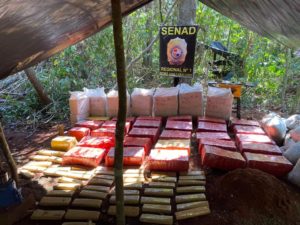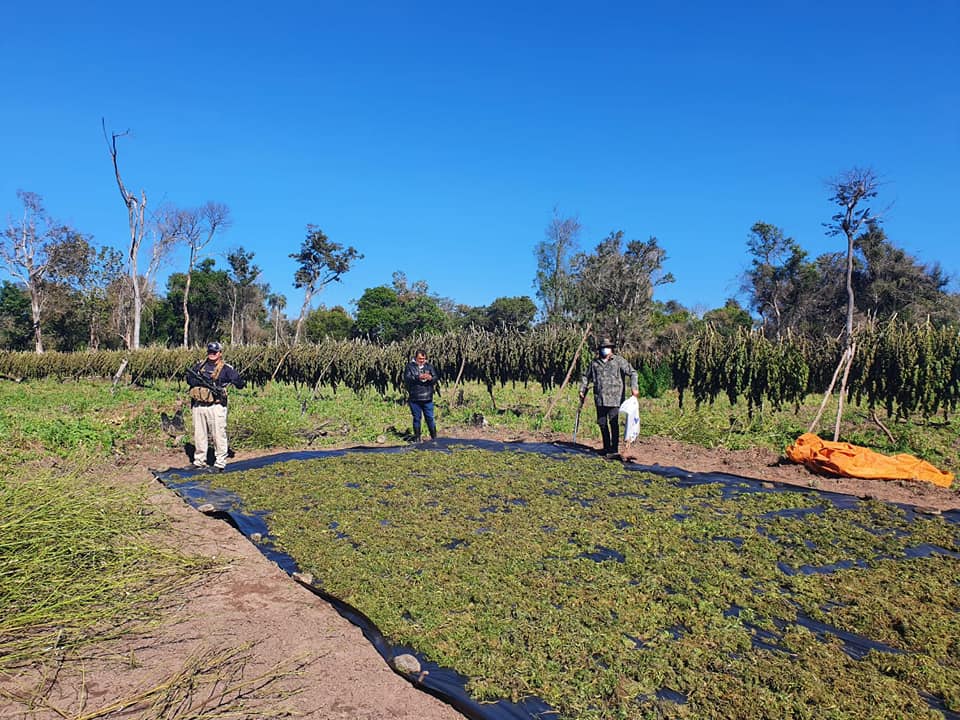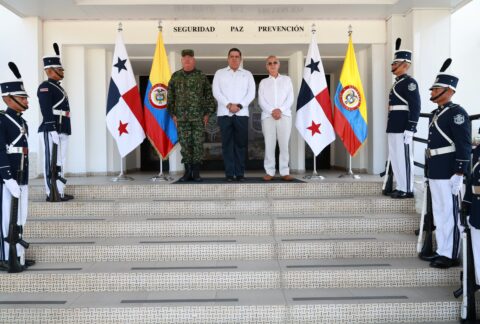In the last two weeks of June, the Paraguayan National Anti-Drug Secretariat (SENAD, in Spanish) dismantled seven drug camps used for marijuana production in Amambay and Caaguazú departments, on the border with Brazil. During the operations, agents found more than 18 tons of the drug.
According to a July 5 statement from SENAD, special agents discovered a camp in a rural area of Caaguazú with 5 tons of marijuana in different phases of production, including chopped marijuana, marijuana stored in bags for distribution, and left to dry.
“In total, 5,240 kilograms of illicit cannabis were incinerated in the joint deployment with the Office of the Attorney General,” the statement said.

In another statement on July 2, SENAD reported that its agents, following an incursion into a wooded area in the Capitán Bado district, Amambay, found five interconnected narco-camps, where each was carrying out a different phase of marijuana production. During the raid, agents found a total of 7,400 kg of cannabis, including 4,400 kg of chopped marijuana and 3,000 kg of brick-type marijuana.
“The drug’s value in Paraguayan territory is around $220,000; however, the narco-structure intended to sell the cache for approximately $2 million in the Brazilian market,” the institution said.
In addition to the drug, SENAD agents seized metal presses, scraps, paper cutters, hydraulic jacks, circular saws, electronic scales, fodder, sprayers, and metal plates, among other equipment for drug production, as well as motorcycles.
Days earlier, SENAD agents had found 1,750 kg of marijuana already packed and pressed in a storage center in the Bella Vista Norte area, Amambay. On site, authorities eradicated 1 hectare of illegal crops, removing more than 5 tons of marijuana from circulation, the institution said in a June 28 statement.
According to the investigative organization In Sight Crime, dedicated to the analysis of transnational crime in Latin America, Paraguay continues to be a relevant criminal hub in the region due to its position as the main marijuana producer in South America, feeding the consumer markets of Argentina and Brazil. Paraguay, the organization says, has become a more attractive area for international criminal groups, such as the notorious Brazilian gang First Capital Command, whose expansion in Brazilian border states has helped them gain control over a large percentage of marijuana produced in Paraguay and introduced in Brazil.









